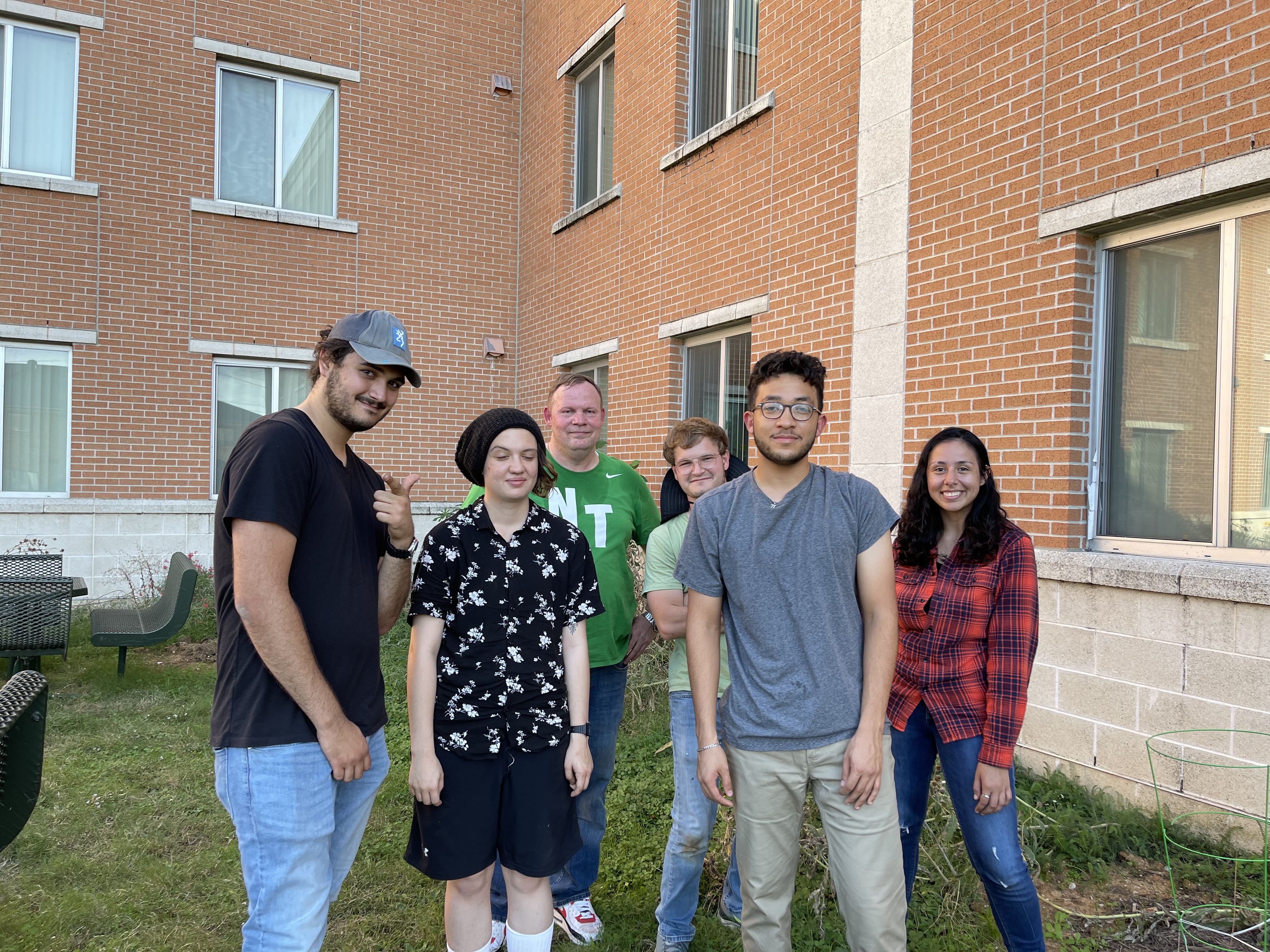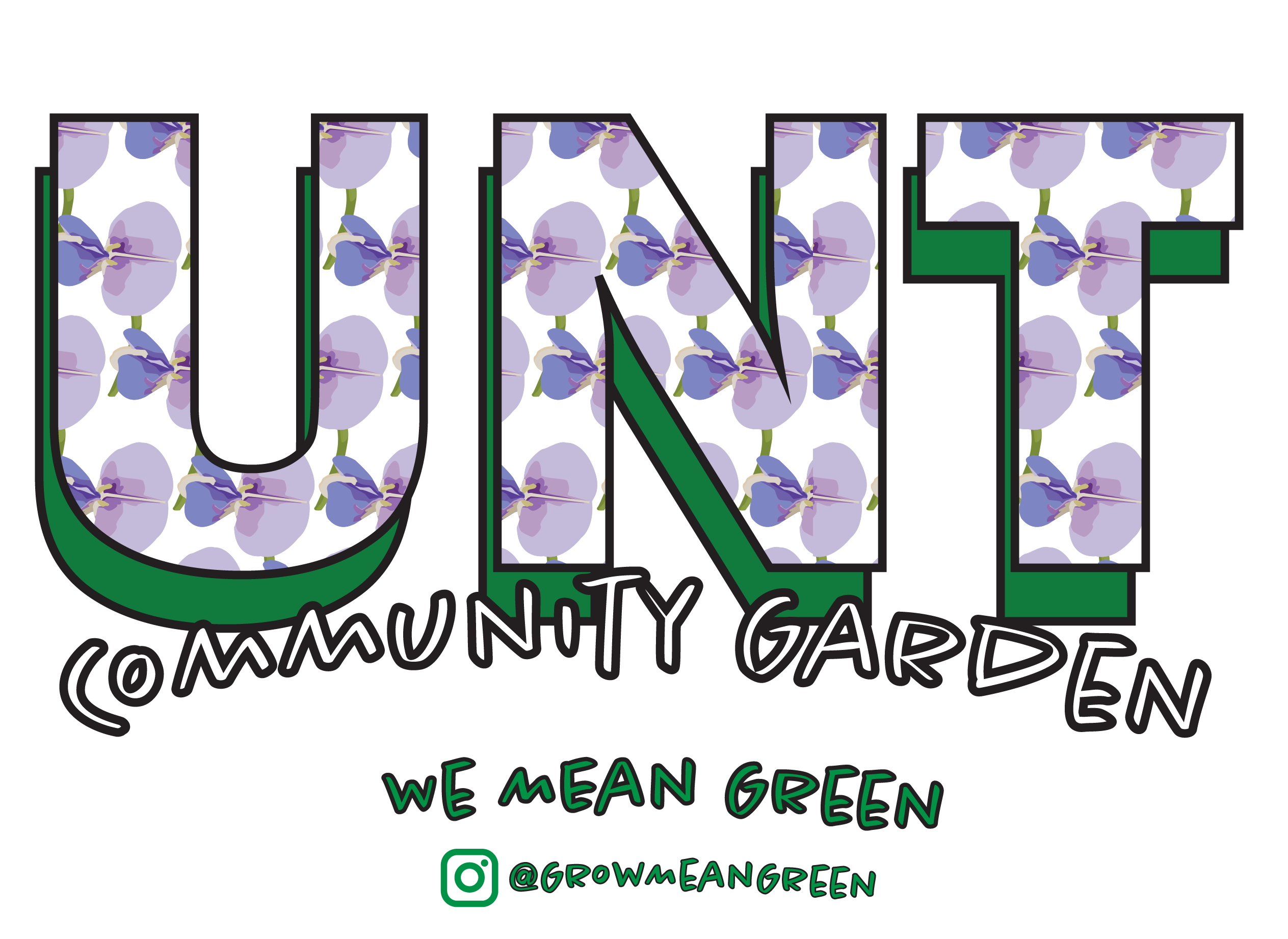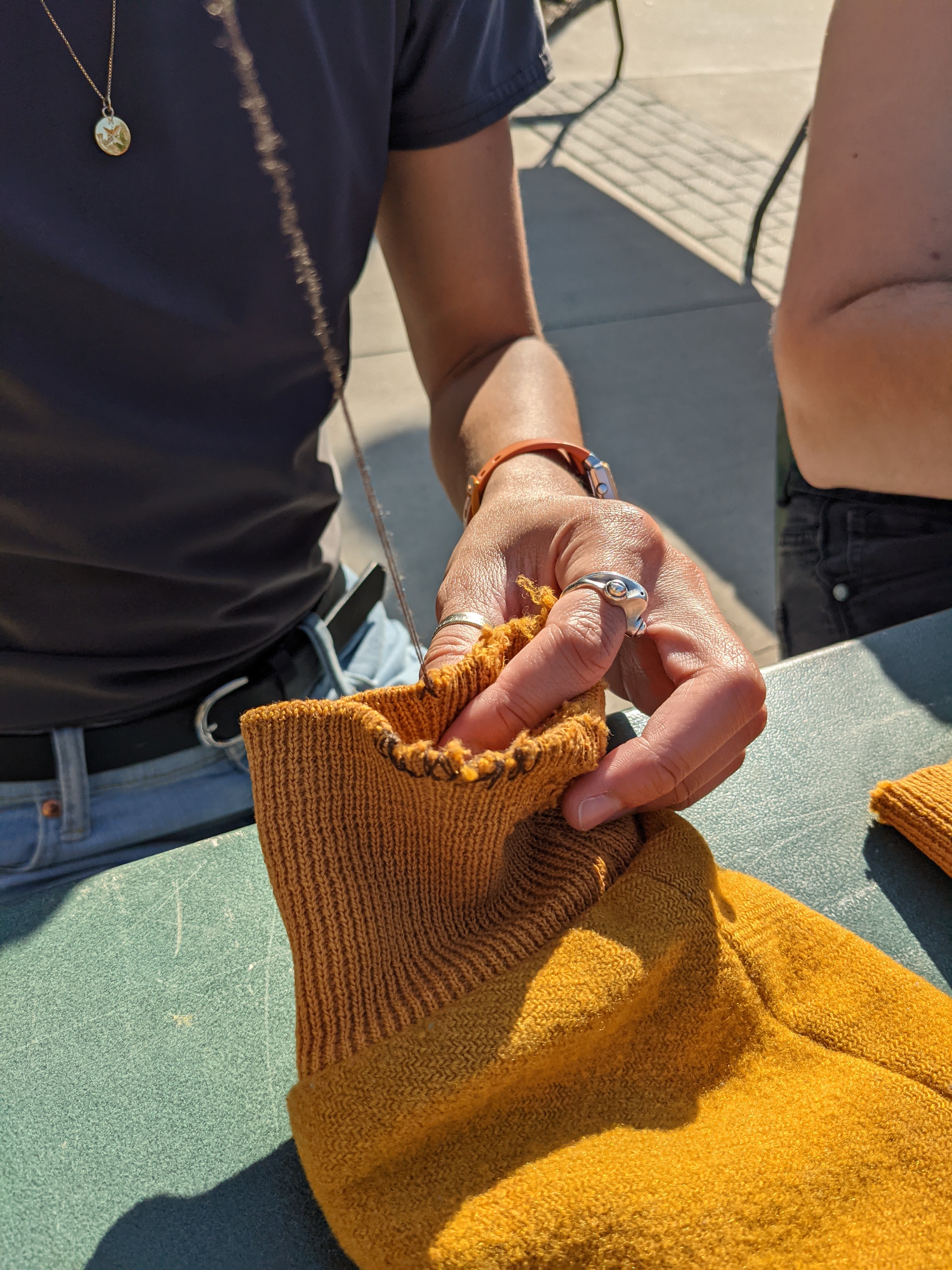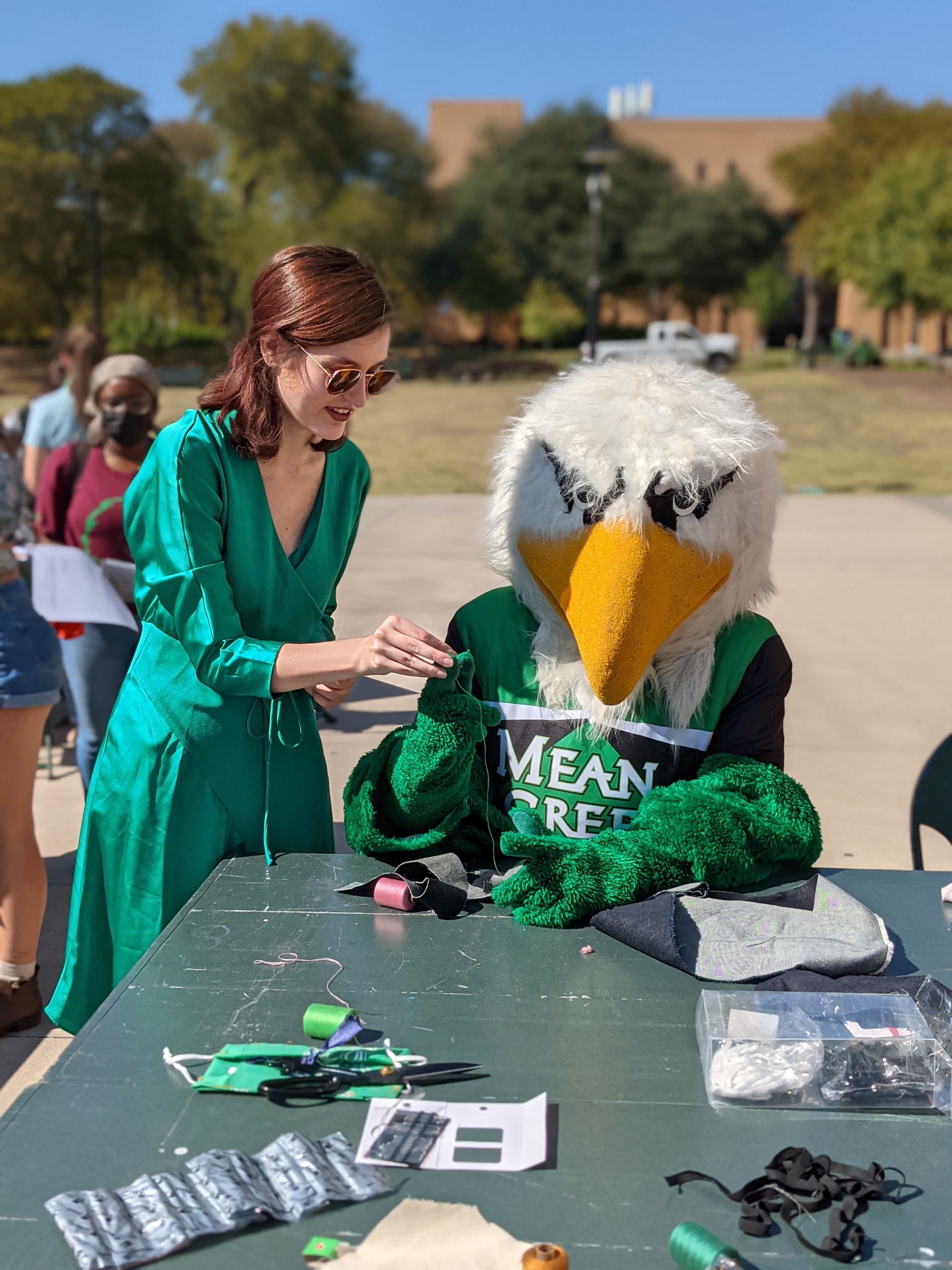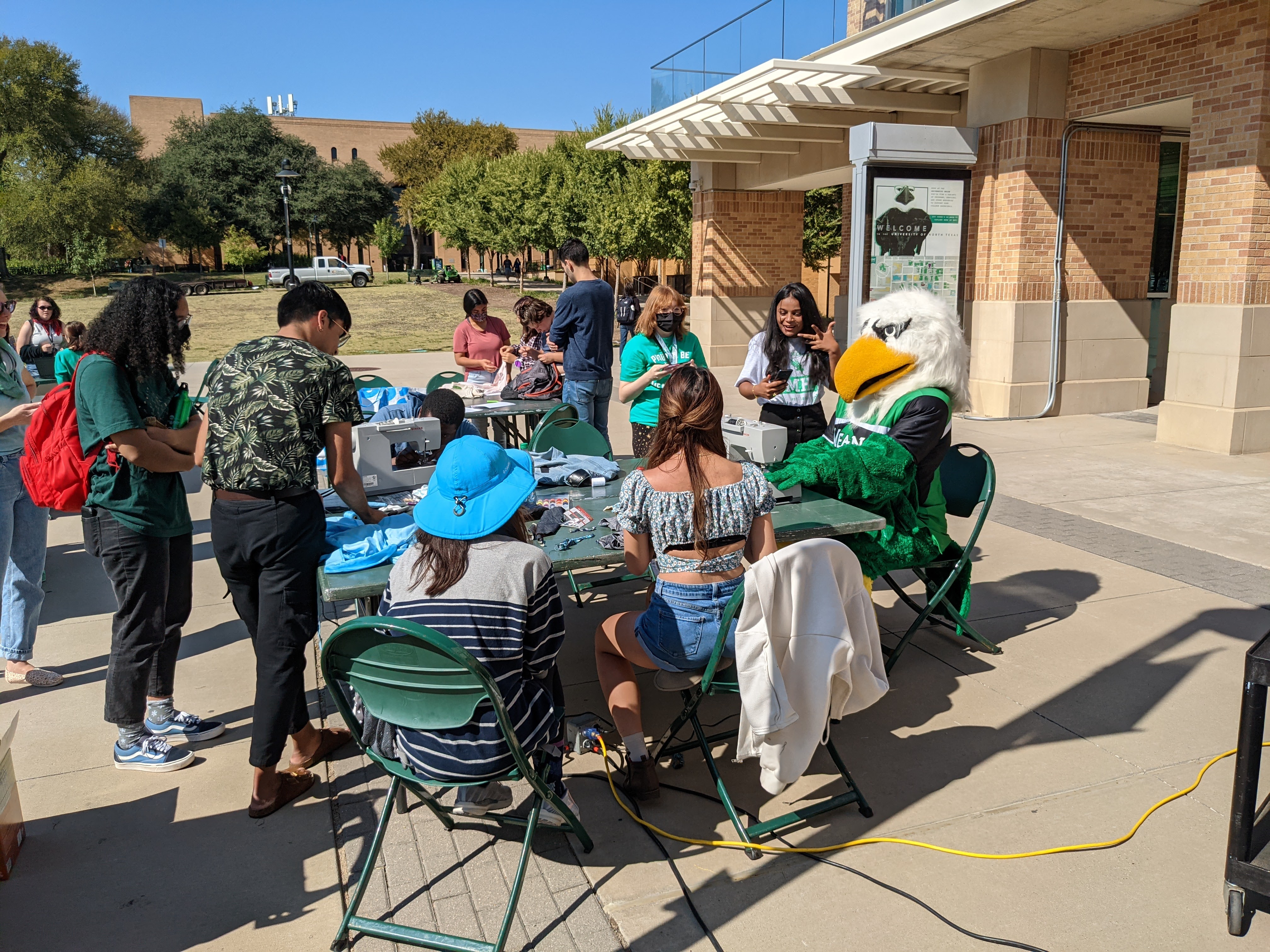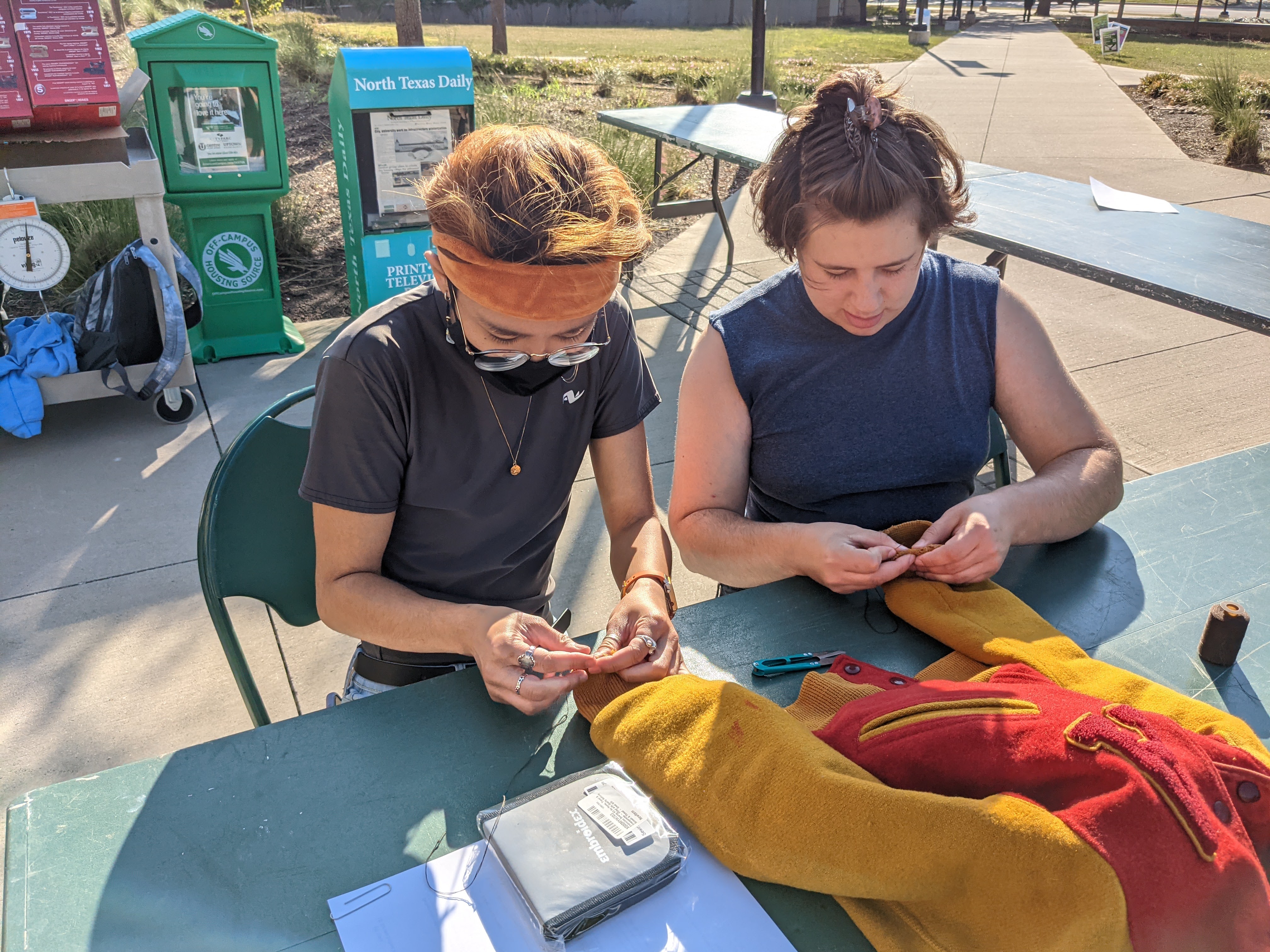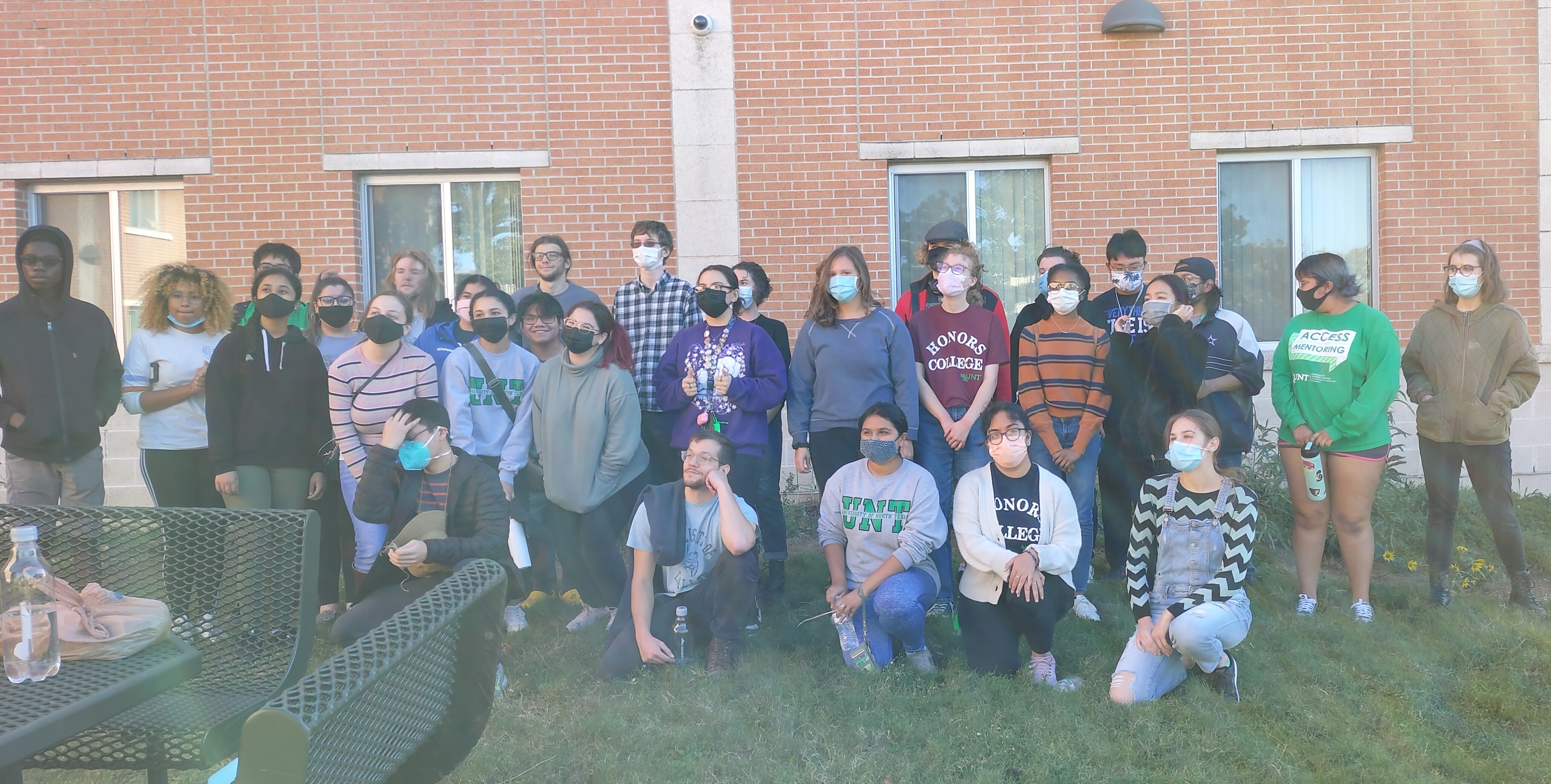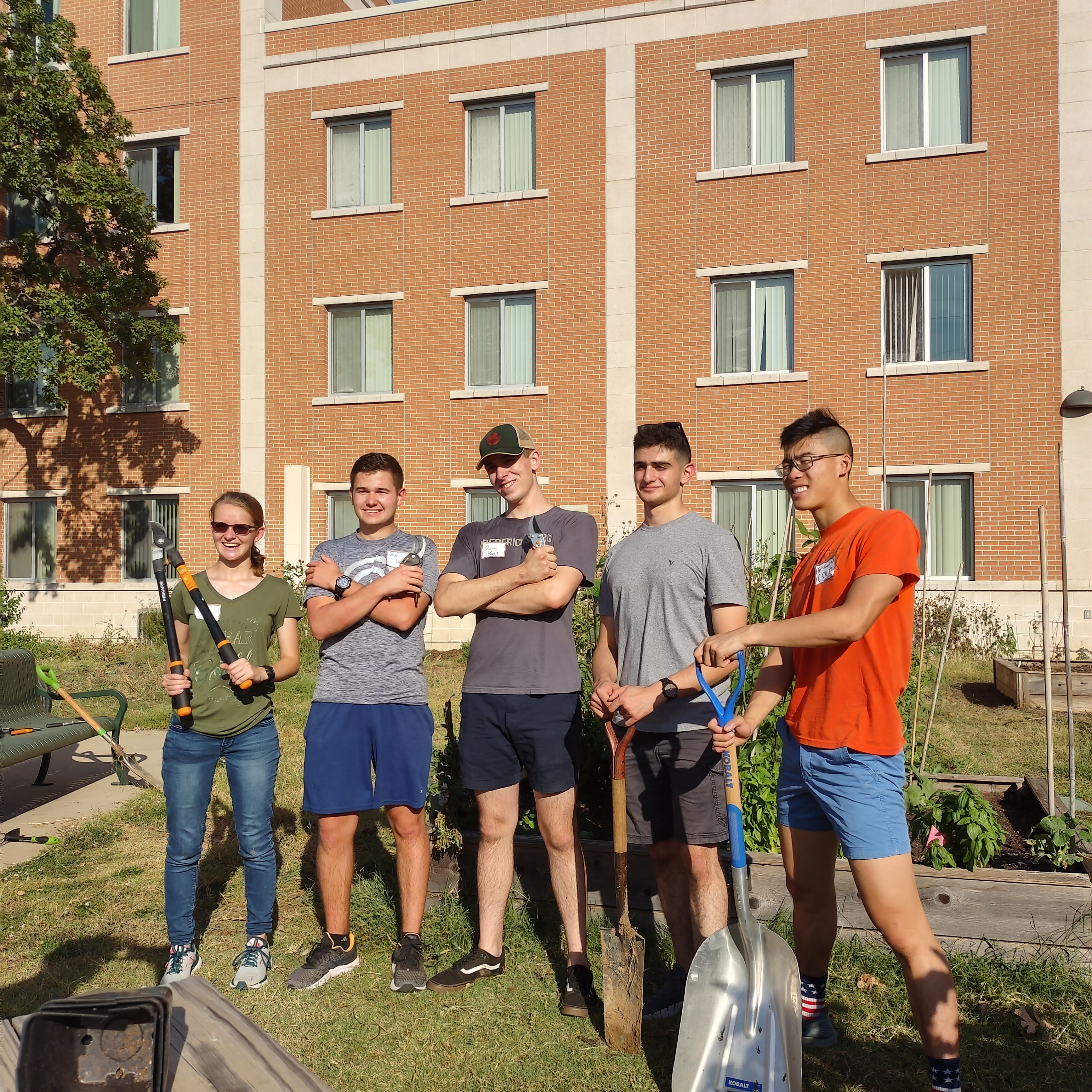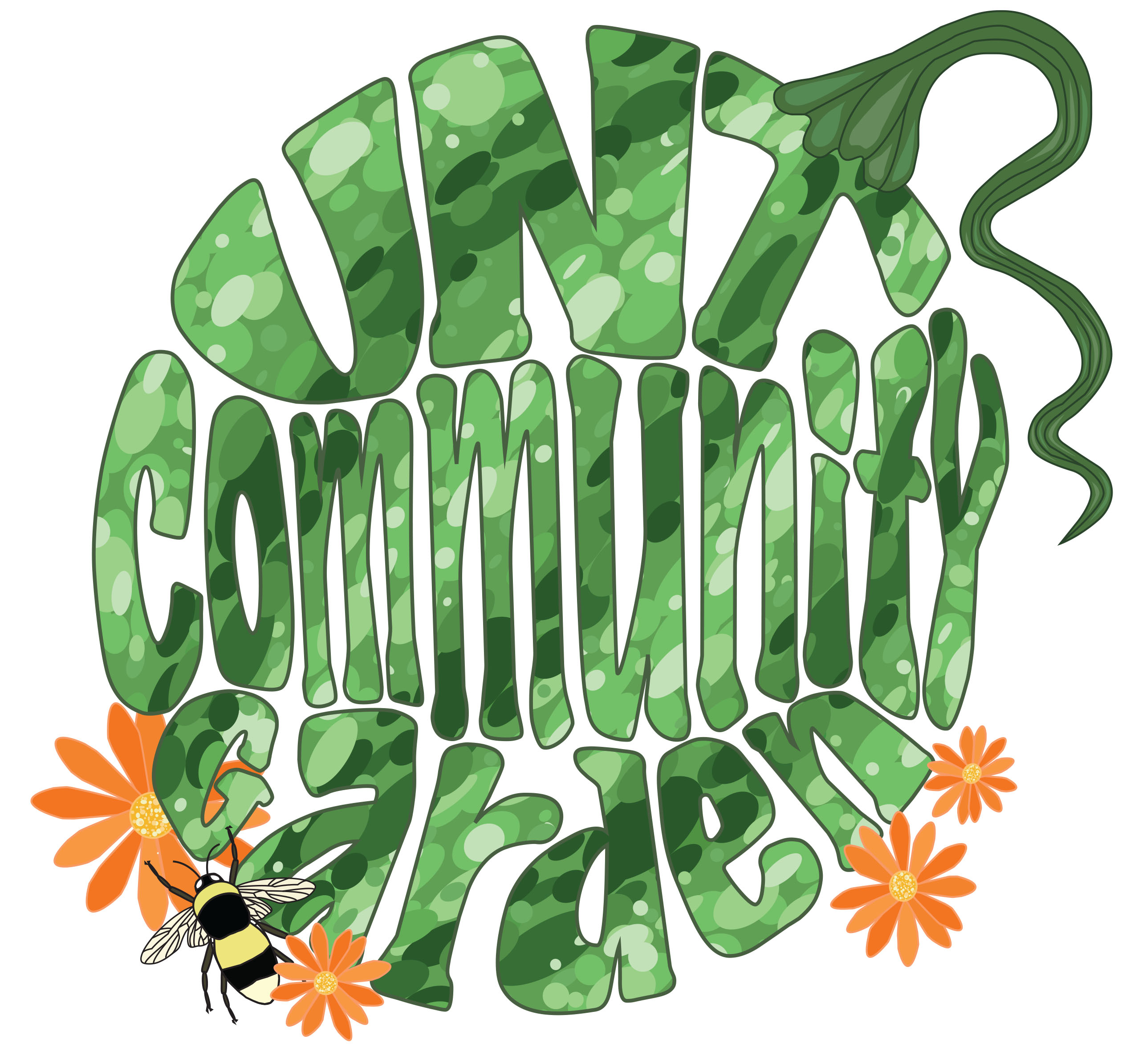We Mean Green Fund
The University of North Texas is working to make its campus a more sustainable community one project at a time. Through its We Mean Green Fund, it creates new campus environmental sustainability projects that are developed and led by students, staff and faculty. The student-funded resource depends on collaborative campus partnerships between individuals, departments, and organizations to advance campus sustainability efforts.
DENTON (UNT), Texas – The University of North Texas is working to make its campus a more sustainable community one project at a time. Through its We Mean Green Fund, it creates new campus environmental sustainability projects that are developed and led by students, staff and faculty. The student-funded resource depends on collaborative campus partnerships between individuals, departments, and organizations to advance campus sustainability efforts.
This year’s projects include a community garden, native pollinator plant bed and border, a College of Visual Arts and Design tote bag project and garden beds planted to grow food for the UNT Food Pantry. The We Mean Green Fund works to benefit the community through conservation, sustainability and education.
“At UNT, the We Mean Green Fund is an excellent way for students, faculty and staff to make sustainability-based changes on campus,” said Garrett Reed, sustainability projects and development graduate assistant. “Our office is funded by a $5 environmental service fee that each student contributes during the fall and spring semesters each year. The funds are awarded to UNT projects that help the university become more sustainability conscious.”
Students, faculty and staff can propose an idea for a project that will help make UNT “greener” and be considered for funding to make their proposal a reality, he said.
One of this year’s projects, a designated area for plants that are both native to the region and known to attract pollinators, was proposed by counseling graduate student Eden Henson.
Henson noted they’re using the iNaturalist app to identify pollinators that visit the native garden and determine what plants can be added to make the garden more beneficial.
“The more pollinators we have, the better our food plants grow. It's not just environmental. It's also practical,” Henson said.. “As a result of this project, I have decided to become a horticultural therapist and use the garden as a therapeutic space."
Reed noted that while many of the projects involve the garden, the WMGF often get ideas from departments that don’t involve the garden at all. CVAD Associate Professor Hae Jin Gam and College of Merchandising, Hospitality and Tourism Assistant Professor Iva Jestratijevic received funding for a clothes-mending workshop on campus to teach students how to repair clothing rather than replace it. Gam also received funding for her fashion design classes to create inspired tote bags for the community garden.
“Students were asked to create designs inspired by the Community Garden, and a committee from the We Mean Green Fund selected the top four to be printed on tote bags,” Gam said. “This is a good opportunity for the students to think about their resources and their environment.”





